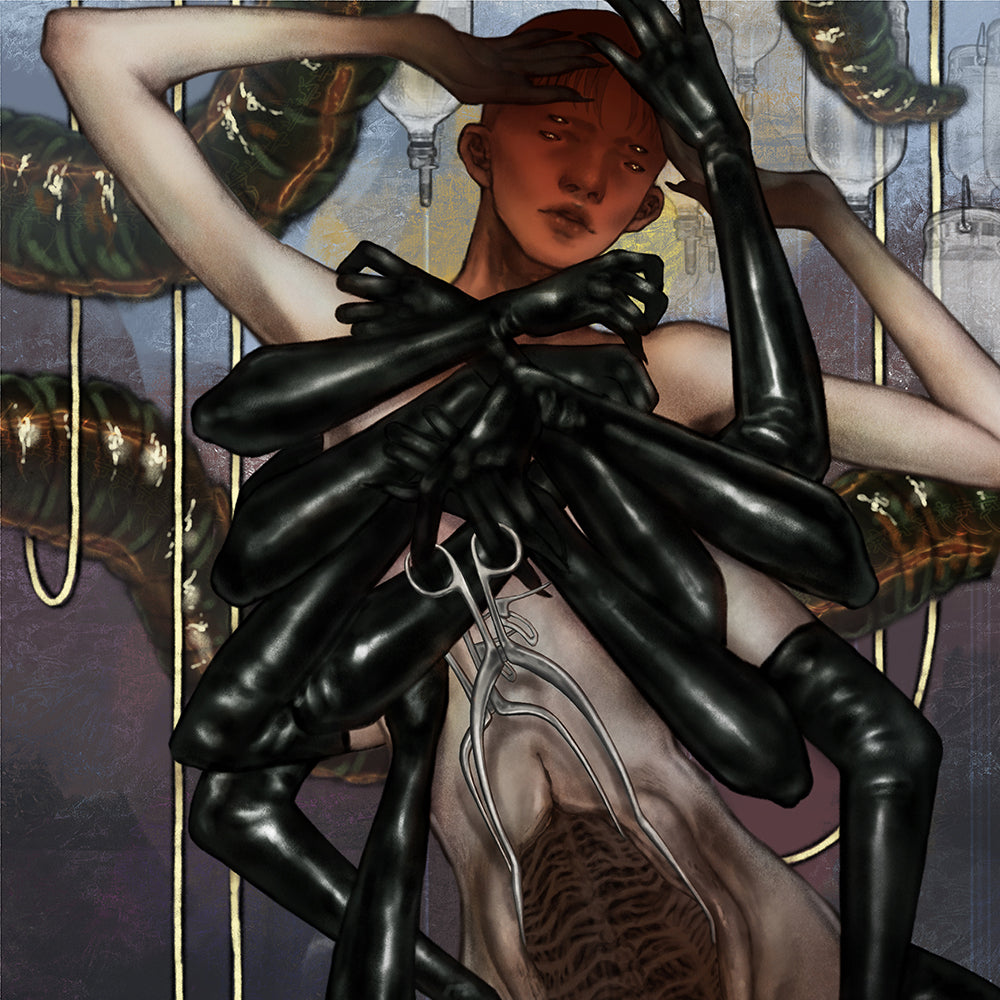
It is the male desire to reproduce the self in perfect mimesis, without female assistance, in a bid for a kind of vicarious personal immortality. In this theme, I mix the concept of 18th century alchemy with the visuals of vintage medical apparatus.

Aphid Cycle 1: "Insemination"
Let the sperm of a man by itself be putrified in a gourd glasse, sealed up, with the highest degree of putrefaction in Horse dung, for the space of forty days, or so long untill it begin to bee alive, move, and stir. It will be something like a Man, yet transparent, and without a body.
The gloved arms are of the creators, each a selfish attempt of desperate individual construction of life in their own image. The abdomen held apart, where the ovary should be is replaced by a complex system (of alchemy).

Aphid Cycle 2: "Manifestation"
A mythical phosphorescent elixir is necessary for the growth of the Homunculus, nutrients to feed on with the absence of the womb/Mother. In the uniformed substance it is now, it shall be placed in the elixir made of ground sunstone, sulphur, magnet, green tutia, and the sap of a white willow. And at once, it will be clothed in human skin.
Additionally, the fluids from the body of the Homunculus are believed to endow the creator with supernatural abilities. The 'feeding' tubes can be viewed in any flow, be it the Creator to Homunculus, Homunculus to Creator. An endless cycle.

Aphid Cycle 3: "Basiliske"
This wee call Homunculus, or Artificiall, and its offspring, the Basiliske. A creature of utmost power, bred of a Woman's menstruation, the Blood of her Sperm. Within is a human spine, along with missing bone fragments for its impurity and in-visible imperfections.
The pleasure in the confusion of boundaries for responsibility in their construction, the relation between organism and machine (technology) has become a border war. It's an encounter of territories where the boundaries of one cannot be completely recognised from the boundaries of the other.

